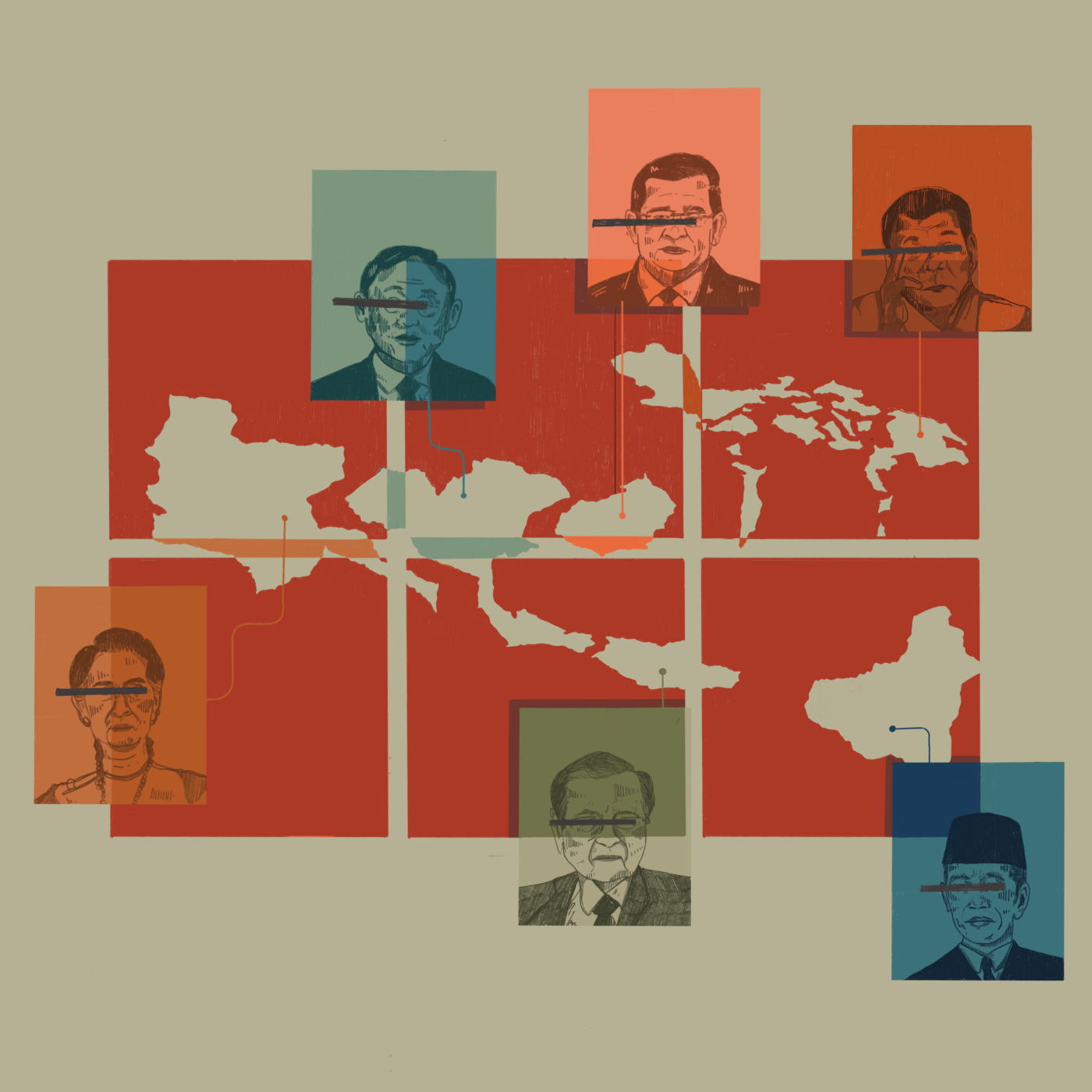SOUTHEAST ASIA is described to have entered another era of “strongman politics.” For every charismatic and authoritarian man-of-the-people persona seen in President Ferdinand Marcos Jr., a similar style is seen in the recent leaders of Malaysia, Cambodia, Thailand, and Indonesia.
Their similarities both in political style and timeline to power form a regional trend which is supported by previous populist waves embodied in former leaders. Now, as Southeast Asia retraces its populist steps, political progress in the region might also face the return of challenges once thought thwarted.
Past and present
The idea of a “return” to strongman politics hinges on certain political terms and styles as well as how these mirror leaders of the past.
Nearly all current leaders of Southeast Asia employed populist tactics in their campaigns—ultimately securing the trust of the people, vilifying opponents, sowing distrust in institutions, and positioning themselves as the spearhead of the people’s will. These strategies are embodied in Marcos Jr., former Burmese Prime Minister (PM) Aung San Suu Kyi, and Thai PM Thaksin Shinawatra, who each pursued populist campaigns as they ascended to power. Former Malaysian PM Mahathir Mohamad—a former strongman pioneer from the 1980s—also used the same decades-old campaign style to secure another election to the Prime Minister’s office in 2018.
The promises of swift, genuine, and pro-people leadership are often paired with authoritarian methods to keep those goals firm. Near total support from bureaucrats, businessmen, and the military allowed leaders such as Indonesian President Suharto, Cambodian PM Pol Pot, and the Philippine President Ferdinand Marcos Sr. to remain in power for decades in the past.
As they did this, the leaders often enabled a stagnation of national progress, manifesting in the form of mass corruption and economic downturn. The resulting corruption and economic inequality that followed each of their regimes are direct products of centralized and consolidated power that allowed for the domination of single-party rule, unquestioned leadership, and undeniable authority in the region.
With increasing nostalgia for Southeast Asia’s past leadership, the region’s former political challenges may now be poised for a comeback.
Out with the old, in with the new
Southeast Asia is set apart from other populist-dominant regions—like certain parts of Europe and South America—by its weak established political parties. Without strong parties, populist leaders are easily able to dominate and abuse the political arena by impairing democratic institutions and practices through clientelism, neopatrimonialism, and even authoritarianism. All of this makes Southeast Asia particularly susceptible to populist practices.
In the case of the Philippines, a lack of accountability towards the state meant inadequate investigations on the war on drugs. This enabled former President Rodrigo Duterte to launch an anti-drug campaign that claimed the lives of over 12,000 Filipinos, while maintaining an 82% satisfaction rating among Filipinos, in 2019. This approval for democratized violence is a case of penal populism—the people’s belief that criminal behavior should be harshly punished under the law.
More recently, the populist wave that swept through the 2022 national elections heavily relied on what Political Analyst Richard Heydarian refers to as “nostalgic populism.” In an interview with CNN Philippines, Heydarian notes the nostalgic comparisons that Marcos Jr. presented in his speeches—including the “glory days” of academics, the supposed “golden age” of his father’s rule, and his campaign tagline, “Sama-sama tayong babangon muli (Together, we shall rise again).”
While this kind of populism draws from the people’s sentimentality of the past, Malaysian populist leader Mahathir carried out his government’s policies with the rationale of protecting Islam, their nation’s official religion. As such, his rule was characterized by a series of policies attributed to digital authoritarianism. Such laws restrict Malaysians’ access to the internet, including content that is harmful under Islamic law. However, these policies also add restrictions on religious minorities.
The rhetoric of “us” versus “them” exhibited by Malaysia’s safeguarding of Islam is not new in populist practices. Myanmar’s Aung San Suu Kyi used similar xenophobic language that differed from her inclusive populist charisma as an opposition leader.
Today, Southeast Asia’s experience with strongmen remains one of the region’s persisting themes in politics. Time has proven that this pattern of politicking often results in weaker democracies, greater social divides, and even institutionalized violence, which impede any political progress in Southeast Asia. As old challenges return to face the region, the need to revisit the consequences of past populist governance persists.




